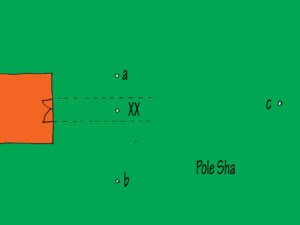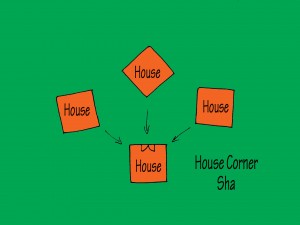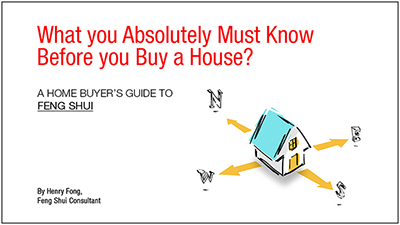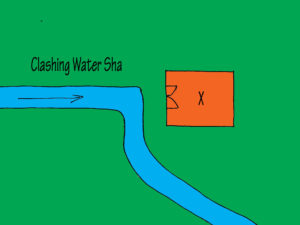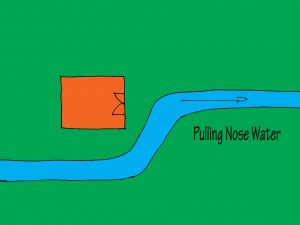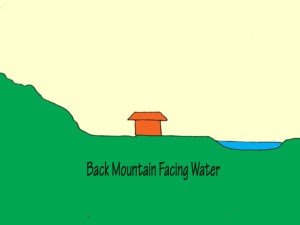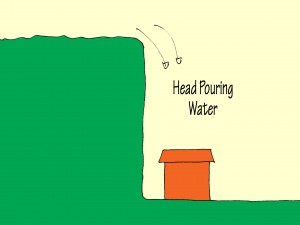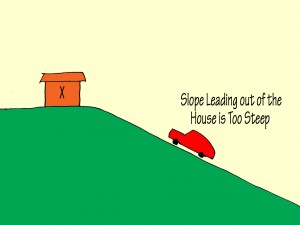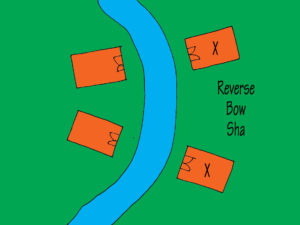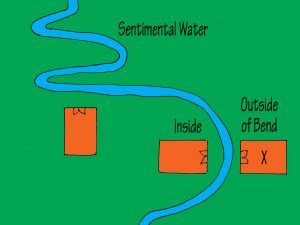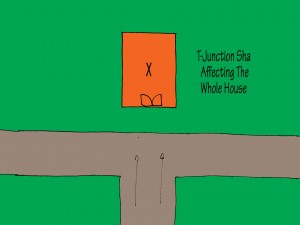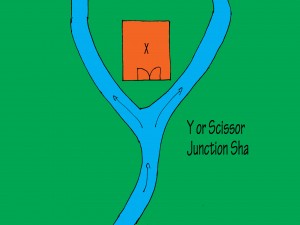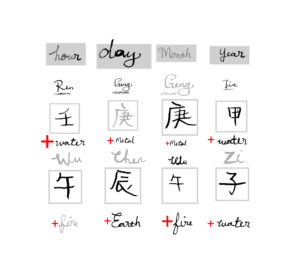During an audit, the practitioner would first examine the surroundings especially at the facing and sitting side to look for auspicious land form and identify inauspicious sha generating structures.
He would also look out of the house though the doors and windows to look for shas that may penetrate the house through them. Since the main door affects the luck of all of the occupants in a house, special attention is given to ensure that it is free from shas.
The main door of your house should not open directly into a pole like structure, the more common ones of which includes the porch column and the lamp post. Stand at the main door and look straight out in the direction perpendicular of the door as shown in the diagram. The column or post should not be in front of the main door using the lines extended from the edge of the door as a guide.
If they are within the dotted lines and near the door, then it is a sha. If they are outside as in position “a” and “b” or very far away as in position “c”, then it is not a problem. Traditional believe is such a sha can cause health and money problem for occupants of the house.
In addition a corner structure either directly in front or behind the main door (as shown) is not favorable.
We should also keep an eye on sha created by the corners of buildings in the near vicinity of the house. This kind or corner sha is also quite common in areas with many apartment block located nearby to each other.
A corner sha is more serious if it attacks the main door or the mouth of qi of a property. In this case, it can affect the luck of all of the occupants of the house. A corner sha that attacks say through the windows of a room is less serious and would likely only affect the occupants of the room.
Another kind of sha is the Wind Blade sha that is generated by two buildings a right angle to each other as shown. The effect of a Wind Blade sha is less than that of a Corner Sha and the inauspicious effect is likely limited to the room in the house affected by the sha.
A variation of the wall blade sha is the Sky Chop Sha that is formed when a property faces gap between two buildings. The wind accelerates in the gap and rushes towards the property at the end.
In an earlier article, you read about the Sound Sha. A good example is living close to a noisy waterfall or next to a a busy highway.
Something similar is the Reflected Light sha. Many modern buildings use glass panels which at a certain angle may reflect sunlight at your house.
Then there is the Smell Sha. A good example is a house located closed to a lake with rotting vegetation. When the wind blows pass the lake towards your house, you are exposed to waves of bad smell which is considered a sha!
The land that the house sits on should be “healthy”. You can assess the health by looking at the flora and fauna. A thriving community of fauna together with lush vegetation shows the presence of strong qi. Land where the vegetation is sparse or turning yellow suggest weak qi.
When selecting a house we should avoid houses that are built on top of a landfill. Unless property treated and maintained, contaminants from the land-field may leak into the surroundings. Methane gas may also leak into the environment. Both of which are detrimental to health.
We should also avoid houses built on former mining land, water logged or swampy land. Unless they are property treated they then to be less stable and the qi tend to be weak.
Finally we should avoid land that was previously used for biological or chemical testing.
You may be interest to know that in the old days, practitioner taste the soil to determine the quality. Thankfully it is not require today!
